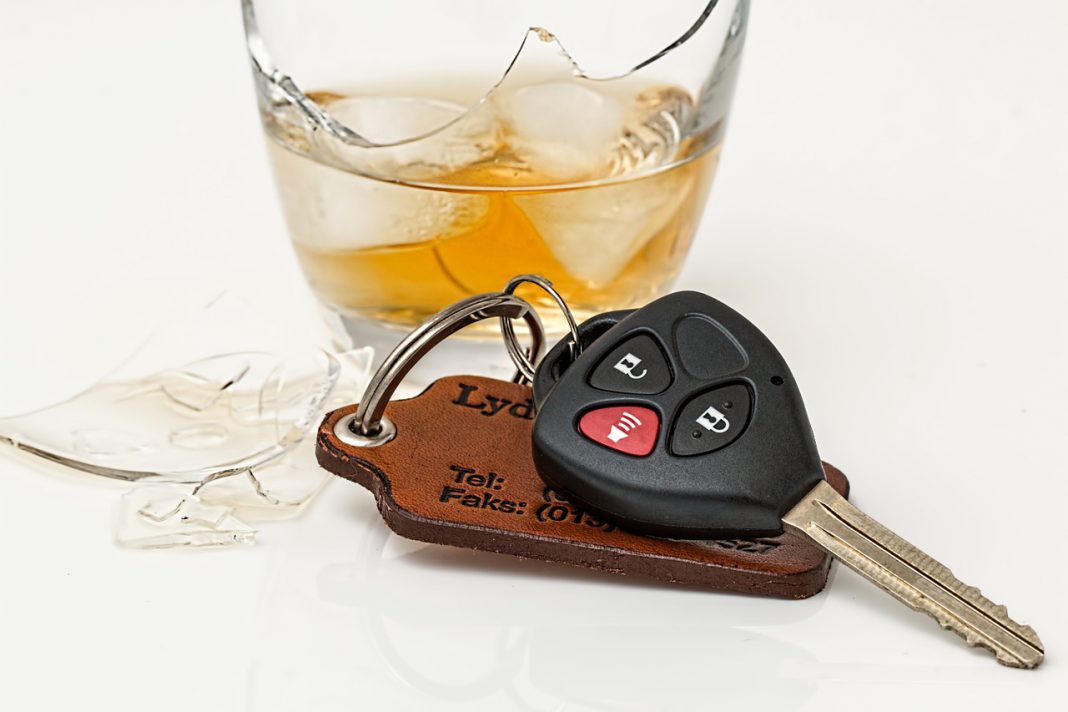OTTAWA—There are new impaired driving rules in place in Ontario that should give pause to anyone considering getting behind the wheel after drinking or doing drugs this holiday season (or anytime, for that matter). One of the key changes implemented with the enactment of Bill C-46 on December 18 is that a police officer can have you submit to a sobriety test without the “probable cause” triggers previously required. If a police officer pulls you over for any reason, or if you come across a RIDE check, they can ask you to take the test. Any lawful stop is sufficient, period. Refusing to take the test in itself will result in serious charges.
Asked if this will make police officers’ jobs easier in combating impaired driving, OPP Community Services Officer Marie Ford said “I think so. Now it is simple, any lawfully stopped driver, any RIDE check will be able to screen. I think it is great.”
Defence lawyers and civil liberties advocates don’t share that view, arguing that the new laws will erode human and civil rights and they are predicting a long and costly series of battles across the nation until the matter is fully settled in the lexicons of the courts.
“There will be some people who say it is unconstitutional,” agreed Officer Ford, “but when you look at the fact that there have been 41 people charged across the province with alcohol or drug impairment since this came into effect, you can see why it is important that we are able to get people off the road. I think this will help people to make the right decisions and not get behind the wheel when they have been drinking or doing drugs.”
Under the current laws on impaired driving, you can find yourself in trouble even if you don’t hit the .08 level. If your blood alcohol concentration is .05 or higher, you fail a roadside sobriety test or you violate the zero tolerance requirements for young, novice and commercial drivers that began on July 1, you will face: first offence, a three-day licence suspension that cannot be appealed and a $250 penalty (begins January 2019). For a second offence within five years you will face a seven-day licence suspension (three-day suspension for commercial drivers). This also cannot be appealed, along with a $350 penalty (begins January 2019). As well, you must attend a mandatory education program (for a second occurrence within 10 years) and third and subsequent offences within five years; a 30-day licence suspension (three-day suspension for commercial drivers). This cannot be appealed and a $450 penalty applies (begins January 2019). Further, you must attend a mandatory treatment program (for third and subsequent offence within 10 years) and you will be required to use an ignition interlock device for at least six months (for third and subsequent offence within 10 years). You will need to undergo a mandatory medical evaluation to determine whether you meet the requirements for driving in Ontario (for fourth and subsequent offence within 10 years).
In addition to the penalties above, you will also face a $198 licence reinstatement fee each time your licence is suspended. You may also be charged under the Highway Traffic Act and if convicted, you will face an additional suspension and fine.
Then come the penalties for a BAC over the legal limit, refusing testing or impairment. If you refuse to take a drug or alcohol test, you register a BAC over 0.08 or if a drug recognition evaluator determines that you are impaired, you will face: a 90-day licence suspension; a seven-day vehicle impoundment; a $550 penalty (begins January 2019); the $198 licence reinstatement fee; you must attend a mandatory education or treatment program (for second and subsequent occurrences within 10 years); and you will be required to use an ignition interlock device for at least six months (for third and subsequent occurrences within 10 years).
Adding to the criminal and civil charges and requirements, there is the impact that having an impaired or other licence suspension on your vehicle insurance—especially if you are a young driver.
The purpose of the new laws is to make them the strongest in the world, but most of the new regulations and requirements have actually been in place in many other jurisdictions.
“When you look at it, 40 other countries have similar requirements in place,” noted Officer Ford. “This is not something that we are inventing.”
And don’t think that cracking open a beer while waiting for the police to arrive at an accident will save you (a common evasion tactic that has previously proven successful for some in court).
“Now if you test over within two hours of operating a vehicle, before and after, you can be charged,” noted Officer Ford. “Now if you get in a collision and crack one on the side of the road you will still face the consequences of your actions.”
Also, the anonymity previously provided by The Expositor and The Recorder is no longer our papers’ policy. Get charged with impaired and we will print your name.
So think twice before sitting behind the wheel after a bit of Christmas cheer, the results can be very severe, even if you don’t find yourself responsible for serious injury or death to yourself, a loved one or a stranger on the road. The chances of getting caught have just gone way, way up. It is just not worth it.
See the full page of drinking and driving advertisements from local businesses on page 18.




